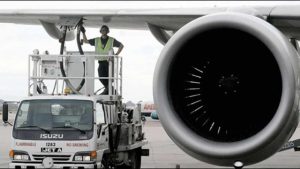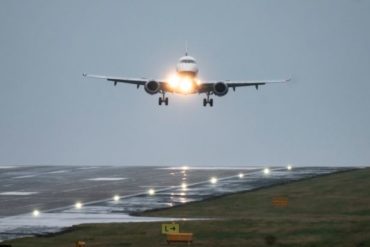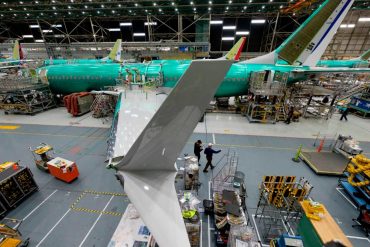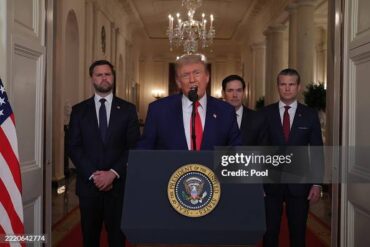
Air fares spike as aviation fuel nears N300/litre at airports
• Logistics challenges, weak Naira push Jet A-1 to N215 in South, over N300/per litre up North
• Apapa ports’ congestion costs importers extra $10,000 to $25,000 daily
• It’s a shame no refinery produces Jet A-1 locally, says Joji
Despite an upswing in the global price of crude oil and attendant blessings for oil-producing countries, the price of aviation fuel has spiked nationwide and much to the pains of airlines and travellers in Nigeria.
A fact-check by The Guardian showed that aviation fuel, also called Jet A-1, has lately sold for between N215 at airports in the South and N300/per litre in low traffic aerodromes in the Northern region of the country. The price had risen in April 2021 to between N250 and N275 per litre, which was about a 200 per cent increase from 2016, when it was sold at N110. It rose to N200 in 2018, hovering around N160 and N170 in 2019.
An average 50 per cent surge in fuel cost, a critical component of airlines’ operation, has also forced airlines to increase airfares with an average Economy Class ticket on less than an hour flight selling for over N65,000.
There are fears of fuel contamination in some quarters, which experts say, could threaten flight safety. Engr. Femi Adeniji of Tropical Arctic Logistics, a helicopter operator, said any jet fuel cheaper than N270 could have been contaminated.
Chairman and CEO of United Nigeria Airlines, Dr. Obiora Okonkwo, decried the development, which he said, has added to the cost of operation.
Okonkwo, whose airline debuted about four months ago, said: “We started operations at N160 per litre barely four months ago and when you move from that price to over N270 within two months, you should expect whatever we are experiencing now. Aviation fuel alone takes between 30 to 40 per cent of airlines’ costs. This is cause for grave concern to everyone.”
The Guardian learnt that the extra burden on end-user airlines and travellers alike is not unconnected with the naira-to-dollar exchange rate, logistics hiccups of importing the product through chaotic Apapa ports, and more expensive distribution to nationwide airports by road.
Aside from the multiple taxes and charges on the product, the monopoly of marketers at less viable airports has also raised the price by some notches – making the product one of the most expensive in the West African region.
Indeed, aviation fuel is the oxygen of the airline business. Though an oil-producing nation and the sixth largest producer in the world, Nigeria’s perennial inability to refine the product locally has made jet fuel susceptible to dictates of the exchange rate, and therefore expensive, accounting for between 30 to 40 per cent of airlines’ operating cost.
Of dire consequence is the recent appreciation of crude oil price to $73.5 per barrel in the world market, and Naira’s free-fall to N500/$1 at home. At these rates, the landing cost of all imported products, including aviation fuel, could only reach for the rooftop.
But the dynamics of aviation fuel is more complicated. As a deregulated arm of the dollar-dependent aviation industry, jet fuel price is directly proportional to the price of crude oil. However, during the plunge of crude oil price late last year, aviation fuel prices did not fall accordingly.
Chief Operating Officer of CITA Petroleum, a major marketer in local aviation, Olasimbo Betiku, said Nigeria is a “situational economy” where pricing is heavily hinged on logistics cost elements.
Betiku said besides the dollar and liquidity constraints, transporting the product through poor infrastructure readily keeps the price comparatively high.
He explained that the product, like others, comes into the country through the Lagos ports, while intractable congestion at Apapa causes a delay in cargo clearance of between four and seven days or more.
Stakeholders were unanimous that for each idle day, an importer pays between $10,000 to $25,000 extra charter cost per vessel. At more efficient ports, like Cotonou in Benin Republic where clearance takes between three to four hours, such add-on costs do not apply.
The risk of conveying the product in trucks remains a challenge in the sector. Since the early 90s, moving aviation fuel from the Mosimi pipeline to Lagos airport has been abandoned for more expensive road transport. While the cost of transportation within Lagos is about N3 per litre, it is about N15 per litre travelling up North as far as Maiduguri.
Similarly, the Federal Government statutorily earns N2:50 fuel surcharge tax per litre. In addition are operators’ permits, ground rent for tank farms, and access permits for equipment into airports.
Betiku said all of the cost elements, the majority of which are avoidable in a functional system, are passed on to consumers as the product price.
“Apapa delay is one of the infrastructural problems, with heavy cost implications. I remember in February 2015 at the first African supply chain optimization conference in South Africa, it was the time crude price was going down. Because the pricing of the product (Jet-A1) is directly proportional to crude price, people (on the continent) thought because Nigeria is a crude-dependent country, there will be an advantage for them to come to Nigeria to do the ad-hoc lifting.
“But I had to explain to them that ours is a situational economy because of the challenges of infrastructure that are not in other countries. Our own peculiar situation is making the product to be higher than what it should be around the coast of West Africa,” he said.
Notwithstanding the comparative disadvantage, the dynamics of the aircraft operations and required fuel load-factor, either at landing or take-off, readily compels operating airplanes to patronize local suppliers.
Betiku noted that marketers would not cluster in most of the airports, as they do in major airports especially in the South, given the huge capital outlay involved and viability of the facilities.
“The frequency of flight to a particular airport is the primary factor. Another is the cost of capital outlay to have a supply system in any airport. The product is available down South and you can move it at lower cost. That means people can easily site the asset down South than in the North.
“The solution is to have an economy that is growing across all layers. To grow the economy, we also need to develop the infrastructure along with the growing population. What of the support services from public and private sectors to oil the economy at large? We need to have a holistic view of the economy,” Betiku said.
Chief Executive Officer of Skypower Express Airways, Capt. Mohammed Joji, said it was unfortunate that the sector still imports aviation fuel 100 per cent. Joji said aviation fuel is just refined kerosene and should not continue to elude local production.
“It is sad and unbelievable that a country with three refineries cannot refine Jet A1 for local use. Someone must be sabotaging the system; otherwise, we have no business importing fuel. The refineries are strategically located. Kaduna refinery takes care of the north, while Warri takes care of the south.
“As it is, you cannot travel from Maiduguri to Lagos by road anymore. So, you need to fly and you need fuel. We only need to refine the product locally and make it cheap, and about 40 per cent of the cost will be reduced,” Joji said.
Secretary-General of the Aviation Safety Round Table Initiative (ASRTI), Group Capt. John Ojikutu (rtd), said concerns over the state of fuel infrastructure borders more on safety than the cost of the product.
Ojikutu noted that local operators and European Union Civil Aviation Authority (EUCAA), on behalf of European carriers flying to Nigeria, had reported contamination in fuel that they bought in Nigeria.
The former Commandant of the Lagos Airport was particularly worried about how the authorities could exercise safety oversight and quality assurance on over 200 trucks that transport Jet A-1 between depots and airports.
He called on the Nigerian Civil Aviation Authority (NCAA) to deepen its oversight on aviation fuel suppliers to ensure that the quality of fuel is not compromised. The aviation analyst also noted that the price could be controlled if the damaged pipelines supplying fuel to the airport were repaired.
“When these are done, you remove the cost of bridging the supply and contamination through trucking with tanks; you remove demurrage on the tanks for the period of waiting before discharge. All these are in addition to the cost of fuel and airlines operational costs,” he said.
He observed that trucks came into the fuel supply chain when pipelines that supplied fuel to the airport ruptured in 1992. Since then, there has been no appreciable effort from the Nigerian National Petroleum Corporation (NNPC), to repair them.
MEANWHILE, there had been repairing proposals to the NNPC to partner with marketers under the Joint Unified Hydrant Installation (JUHI) to repair the pipelines. Also, there was a proposal for JUHI and airlines to jointly repair the pipelines. Or that the repair, operation of the pipelines and hydrants be given a concession to a private company for a period of 20 to 30 years. None of these is heeded to date.
“Except the repairs are done or the NNPC/DPR and the Nigerian Civil Aviation Authority (NCAA) enforce quality assurance on JUHI, the contamination through truck tankers transportation that have caused not less than eight serious incidents could begin resulting into serious accidents in future or even now,” Ojikutu said.
The International Air Transport Association (IATA), a clearinghouse for over 280 airlines worldwide, in 2018, ranked Nigeria and other African countries as some of the most expensive places to do aviation business in the world.
The then Director-General and Chief Executive Officer of IATA, Alexandre de Juniac, at the 50th Annual General Assembly meeting of the African Airlines Association (AFRAA), held in Rabat, Morocco, said Nigeria and others need to ease the aviation business environment, by paying more attention to infrastructure for massive growth.
“There is no shortage of examples illustrating the heavy burden that governments extract from aviation. Jet fuel costs are 35 per cent higher than the rest of the world. User charges, as a percentage of airlines’ operating costs, are double the industry average. And taxes and charges are among the highest in the world. On top of that, $670 million of airline funds are blocked. Too many African governments view aviation as a luxury rather than a necessity. We must change that perception,” de Juniac said.



